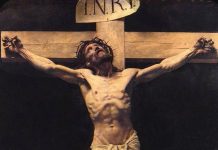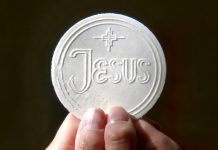“Lord, have mercy on us’ is one prayer that is so close to the hearts of believers of all generations. Psalm 51 starts with a prayer for God’s mercy. When ‘we lift up our eyes to the one who is enthroned in the heavens’ ( Ps 123:1), it is also a prayer for mercy. ‘Have mercy upon us, O Lord, have mercy upon us’ (Ps 123:3) is our daily prayer. Isaiah’s prayer on behalf of his people was also for the Lord to be gracious towards them ( Isa 33:2).
Bartimaeus’ too prayed for the Messiah’s mercy. ‘Jesus, son of David, have mercy on me’ (Mk 10:47). When others tried to discourage him, he cried out even more loudly, and his prayer was answered! The criminal, whom we call ‘the good thief’ asked Lord’s mercy when he realized that he had no merits of his own to stand before God (Lk 23:42).
The Holy Bible introduces a God who is eagerly waiting to hear the prayer for mercy from the lips of his children. The Canaanite woman knew that the ‘Lord’s ear is not too dull to hear’(Isa 59:1) her prayer for mercy. So she started shouting; ‘Have mercy on me, Lord, Son of David’ (Mt 15:22). Her prayer was heard, though after an initial reluctance. As for the tax collector who confessed his unworthiness before God and prayed for mercy, Jesus said that ‘he went down to his home justified rather than the Pharisee’ (Lk 18:14), who in his arrogance forgot to seek God’s mercy.
What is mercy? It is nothing but the true nature of God. This is perhaps the most distinguishing trait of true God. There are many other deities spread over religions who are blood-thirsty and who enjoy taking revenge. But our God is another name for the great mercy that ‘makes his sun rise on the evil and on the good, and sends his rain on the righteous and on the unrighteous’ (Mt 5:45). In fact God wants this mercy to the distinguishing factor that should separate His children from others (Mt 5:45). Jesus taught that the only condition to be eligible for divine mercy is to show mercy to others. ‘ Blessed are the merciful, for they will receive mercy’ (Mt 5:7).
The feast of Divine Mercy is the celebration of God’s unfathomable mercy that was revealed through St Faustina. Jesus told Faustina that it is the biggest sinner who deserved the greatest mercy. This revelation is a confirmation of what Jesus told the Pharisees and scribes during the banquet hosted by Levi the tax collector. ‘I have come to call not the righteous, but sinners to repentance’ (Lk 5:32). Because the purpose of God’s mercy is to lead man to repentance. The words of the apostle are an explanation to the question why God shows steadfast mercy towards us mortals. ‘Do you not realize that God’s kindness is meant to lead you to repentance?’ (Rom 2:4).
There is nothing beyond the ocean of divine mercy but divine justice, of which the apostle says; ‘But by your hard and impenitent heart you are storing up wrath for yourself on the day of wrath, when God’s righteous judgment will be revealed’ (Rom 2:5).
Now is the time to choose mercy over justice. And the nearest opportunity to do so is the feast of Divine Mercy. On this occasion, our prayers should be to not let our hearts turn hard and impenitent. Let us pray for the anointing of true repentance to cleanse us, so that we could get the confidence to kneel before the Lord and pray for his mercy.
Remember, we are living in the last hour of mercy. Jesus told Faustina that when the door of mercy closes, another door, the door of justice will open. Do you think that we, ‘ungodly sinners’ may be able to scrape through at a time when ‘ it is hard (even) for the righteous to be saved’ (1 Pet 4:18)? So let us trust in God’s mercy right now, before the sun of mercy sets behind us. And as the nearest preparation for claiming God’s mercy, let us forgive others and show them mercy, so that our petitions be acceptable before God.

















